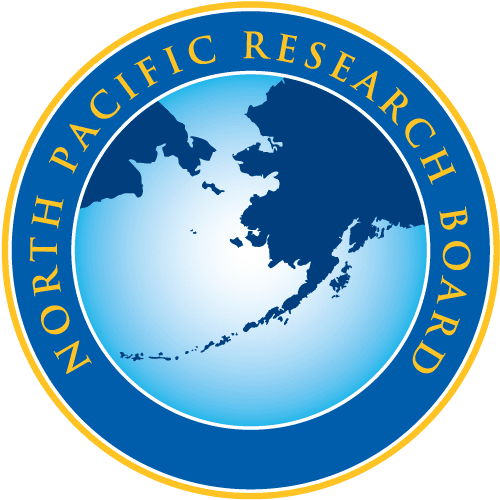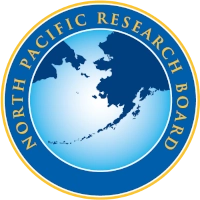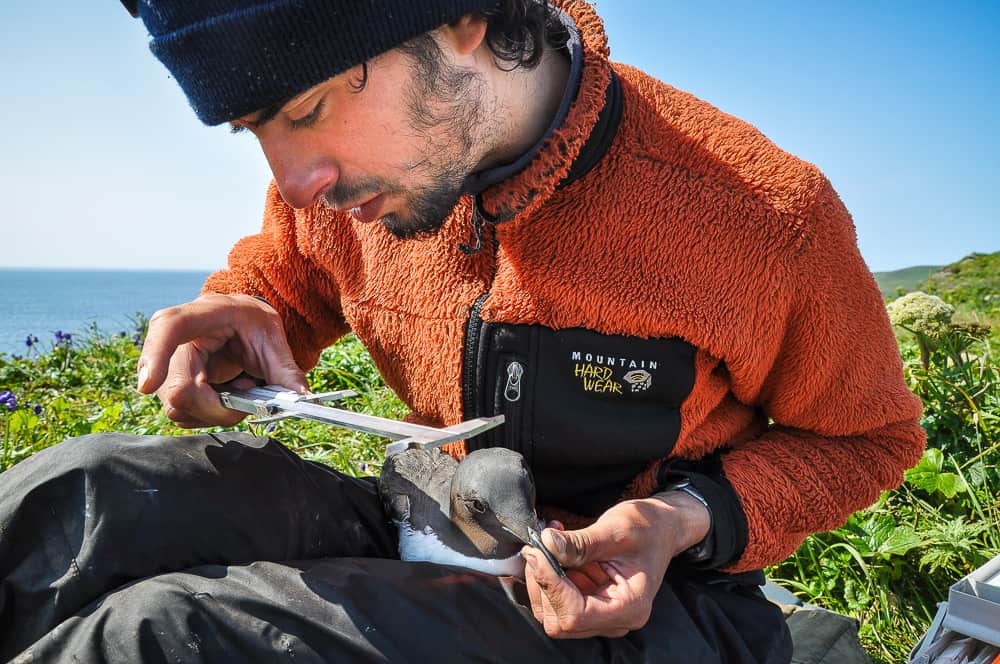Current NPRB Opportunities
UP-TO-DATE LISTINGS OF FUNDING, PANEL, AND JOB OPPORTUNITIES.
CORE PROGRAM SUBMISSIONS ARE OPEN FOR FLEX GRANTS ONLY AT THIS TIME.
The North Pacific Research Board offers competitive marine science funding for each of our research programs. Learn more about current opportunities and other ways you can get involved with us.
RESEARCH BOARD
NORTH PACIFIC
RESEARCH BOARD
The North Pacific Research Board (NPRB) was created by Congress in 1997 to recommend marine research activities to the U.S. Secretary of Commerce. For over two decades, NPRB has been committed to better understanding the waters surrounding Alaska as they relate to pressing fishery management issues and important ecosystem information needs.

Supporting Pressing Fisheries Management Issues in the North Pacific
Alaska supports some of the most diverse and abundant marine ecosystems in the world. Species large and small depend upon the state’s unique marine environments for survival from coastal kelp beds to the undercarriage of multi-year Arctic sea ice. For coastal communities and those that utilize Alaska marine resources, this dependence extends beyond food or survival to traditional, cultural, and economic values that are shared by many—even to those outside the state. Alaska generates more than 40% of the commercial fish landings in the United States. It is no wonder that with over 44,000 miles of coastline stretching from the frigid, exposed waters of the Beaufort Sea to the sheltered narrows of the Inside Passage, a shared responsibility and knowledge is required to support the long-term health of these ecosystems.
Understanding Alaska’s marine ecosystems is a collaborative effort. Using science and local traditional knowledge, scientists from all over the world are studying the oceanography, plants, and animals of the North Pacific, Bering Sea, and the Arctic Ocean through funding support by the North Pacific Research Board (NPRB). NPRB’s mission is to build a clear understanding of these ecosystems thereby enabling effective management and sustainable use of marine resources.
Investing in Alaska’s Marine Resources and Economy
Research to better understand and manage North Pacific marine ecosystems is critical, particularly in the context of important commercial and subsistence fisheries and recent environmental and ecological shifts. Since 2002, The North Pacific Research Board has strategically invested in more than $143 million to support robust, integrated, and applied marine science in the Arctic, Bering, and Gulf of Alaska marine ecosystems.
With a steady funding source, and the ability to be agile when necessary, NPRB will stay the course to support important marine research as it relates to pressing fisheries management issues and important ecosystem needs.
Total Research Awards
Total Amount Funded Since 2002
Peer Reviewed Publications
credit: Ryan Kingsberry
credit: Andrew Trites
credit: Nathaniel Wilder
credit: David Forcucci
credit: Ann Fienup-Riordan
credit: Chris Linder
credit: Andrew Trites
Explore Our Research Funding Programs
The North Pacific Research Board directs research towards species, processes, and dynamics in the marine ecosystems of Alaska, including the Gulf of Alaska, the Bering Sea, the Aleutian Islands, and the Chukchi and Beaufort Seas in the Arctic. For over two decades, NPRB has developed strong, complimentary research programs—Core, Integrated Ecosystem Research, Long-term Monitoring, Graduate Student Research Awards, and Outreach—to inform effective fishery management and improve our understanding of Alaska marine systems.
Integrated Ecosystem Research
NPRB developed the Integrated Ecosystem Research Program (IERP) to support innovative multi-disciplinary research to improve understanding of the complex mechanistic processes that influence the structure and function of marine ecosystems.
core program
NPRB supports a competitive, peer-reviewed annual request for proposal (RFP) process dedicated to marine research in Alaskan waters. The Core Program is structured to address both pressing fishery management issues and important ecosystem information needs as prioritized by our Science Plan.
long-term monitoring
Long-term monitoring projects aid in the understanding of ecosystem variability and the effect of this variability on subsistence and/or commercial marine resources. Projects address appropriate temporal and spatial scales and involve multiple trophic levels.
graduate student awards
NPRB offers a competetive Graduate Student Research Award in the amount of $26,000 to qualified Master’s and Doctoral level students. Awards are granted to address scientific, technological, and socioeconomic issues relating to current NPRB research priorities and themes.
Outreach Program
NPRB has long recognized the need to pair its world-class funded research with equally robust communication, education, and outreach initiatives. NPRB requires that all requests for proposals in each of the research programs include a certain level of stakeholder and/or community involvement as well as outreach.
credit: Brendan Smith/NPRB
credit: Carl Johnson
credit: Brendan Smith/NPRB
credit: Sean Neilson
credit: Glenn Aronwits
credit: Brendan Smith/NPRB
BUILDING PARTNERSHIPS & COLLABORATIONS
NPRB is committed to facilitating collaborative research, integrating industry and institutional research efforts, and engaging stakeholders in project development, research, and reporting. NPRB maintains a partnership with the Oil Spill Recovery Institute, and has developed criteria for joint funding of research with other partners. Partnerships have also been developed with industry, federal agencies, and universities for the Core and Integrated Ecosystem Research Programs. With a trusted peer-review process, a long-standing system for soliciting and funding world-class research, and access to the broader research community, NPRB offers unique and established benefits to partner institutions. NPRB is engaged in discussions on how to enhance and expand these partnerships, including financial contributions, leveraging in-kind resources, and/or joint investments.
Over 200 different institutions funded
Since 2002, over 200 different scientific institutions have been awarded 1,228 research awards totaling almost $145 million in funding to support the marine science community, including coastal communities, academia, federal and state institutions, NGOs, and international constituents.
Importantly, NPRB continues to assume a central role in the coordination of marine science, integration across disciplinary, institutional, and international boundaries, and data and information exchange. In Alaska, NPRB is facilitating exchange between international, federal, and state research and management agencies in areas such as eco-forecasting, integrated stock assessment models for groundfish, collaborative research with industry, and basin-scale dynamics of Pacific salmon. Internationally, NPRB staff are engaged in facilitating exchange and interaction with U.S. and Russian scientists on Arctic research, collaboration with Japanese research in the Aleutians and Bering Sea, and international data exchange relevant to the International Pacific Halibut Commission.
NPRB research programs are designed to be broadly responsive to the interests and concerns of the marine science community. This includes the coastal communities that call the North Pacific waters their backyard. Communities and community members can make substantial contributions to NPRB research. Collaborative approaches include projects involving local and traditional knowledge, co-production of knowledge, and responsiveness to community-based research needs and priorities.
TOTAL CONGRESSIONAL FUNDING SINCE 2002
The NPRB budget relies almost solely upon a portion of the annual interest from the Environmental Improvement and Restoration Fund (EIRF). This fund was established by Congress in 1997, derived from half of the settlement monies from the Dinkum Sands dispute over oil and gas leasing off the Arctic coast of Alaska. Each year, 20 percent of the annual interest of the EIRF is provided to the U.S. Department of Commerce and subsequently routed through the National Oceanic and Atmospheric Administration (NOAA) to NPRB.
The EIRF earns interest on ten-year U.S. Treasury notes. Because of this, NPRB was insulated from the economic recession in the 2010s, but has since weathered a slow decline to the organization’s lowest award value in 2020. Projections suggest grant amounts will remain near the current low levels for the foreseeable future. The Board is currently engaged in a budget planning process to identify ways to increase our efficiency and find new funding partners. This planning will allow NPRB to remain a reliable source of funding for high quality marine research in the North Pacific.














